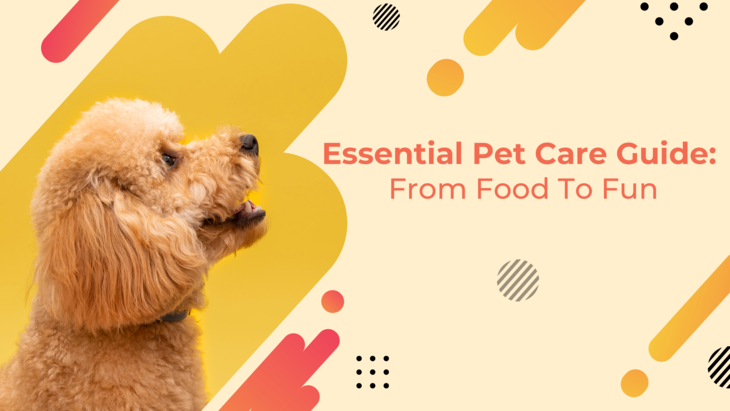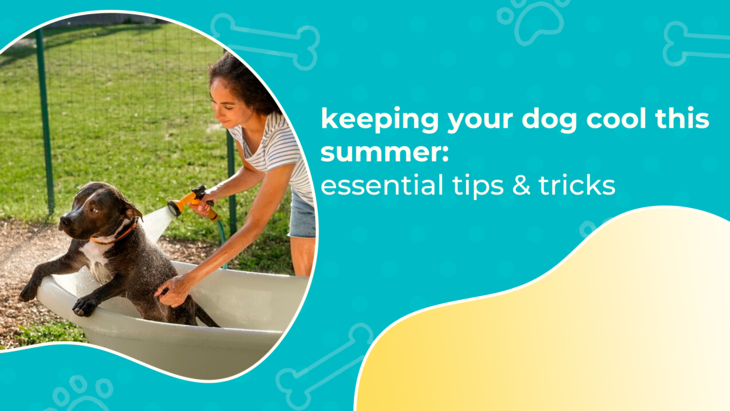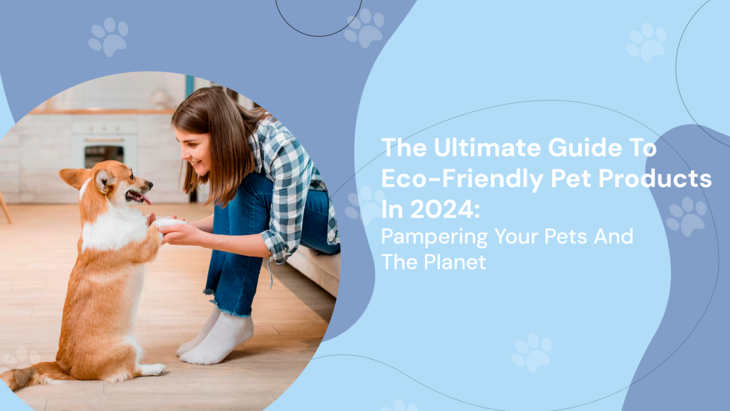Making your happy pet a part of your family and life is a very enriching and charged feeling. Pets will give you freedom and unconditional love, companionship all the time, and entertainment in capability. However, we must take into consideration that just like any new introduction of family members in our home, pets also come with a responsibility to ensure their welfare and happiness. Here is how we will take you through all the basic pet care essentials such as feeding, maintaining mental balance, and training to play.
Building a Foundation: Essential Needs
Before we delve into the exciting world of toys and treats, let's establish the core needs of a happy and healthy pet. These are the non-negotiables that form the foundation of responsible pet ownership.
-
Nutrition: A well-balanced diet which is the basis of your pet health is also crucial. consult your vet about the ideal food for your animal's age and bark considering the breed-specific health issues and the activity level of your pet. There are a wide range of choices from available brands such as kibble, canned food, or raw food grains diets. It is imperative that whenever one gets thirsty, clean water should be easily accessible.
-
Comfortable Shelter: Provide your pet with a safe and comfortable place to sleep and relax. This could be a cozy bed, a crate for dogs, a designated area with soft blankets for cats, or a species-appropriate enclosure for smaller animals.
-
Regular Veterinary Care: Make sure to schedule checkups with the vet regularly and although some noticeable symptoms may appear, it will be better to deal with such issues as soon as possible. Being ahead of the disease and longevity prevention are two of the most important things for health.
-
Hygiene and Grooming: Regular brushing helps maintain a healthy coat, removes dirt and debris, and promotes bonding with your pet. Bathing frequency depends on the species and individual needs. Always use pet-safe shampoos and conditioners. Dental hygiene is also important – consult your vet about cleaning your pet's teeth or providing dental chews.
-
Exercise and Playtime: Exercise keeps your pet physically and mentally stimulated, reducing boredom and destructive behaviors. Daily walks, playtime, and interactive toys are essential for most pets. The amount and type of exercise will vary based on the species, age, and overall health of your pet.
Fulfilling Their Needs: Species-Specific Considerations
While the core needs listed above apply to most pets, some specific considerations are depending on the type of animal you share your home with:
-
Dogs: The dog is the one who wants socialization passionately and he hates to be left alone at home. Boundaries and proper behavior happen when a training process is executed and is mandatory. Nature walks and outdoor sports give them physical and mental strength.
-
Cats: Cats are known for their independence, but they still require attention and affection. Provide scratching posts, climbing structures, and perches to cater to their instincts. Interactive toys and playtime are important for mental stimulation.
-
Small Animals (rabbits, guinea pigs, hamsters): These smaller creatures need spacious enclosures with appropriate bedding, hiding spots, and chew toys to keep their teeth healthy. Fresh hay is a crucial part of their diet.
-
Birds: Birds require large cages with plenty of room to fly and climb. Offer a variety of perches made from different materials, toys that encourage foraging and exploration, and a balanced diet formulated for your specific bird species.
-
Fish: Maintain a clean aquarium with proper filtration and water parameters. Choose fish compatible with each other and the size of your tank. Provide hiding spots and live plants for a natural environment.
Remember: Always research the specific needs of your pet breed or species to ensure you're providing the best possible care.
Beyond the Basics: Enrichment and Fun
Once your pet's basic needs are met, you can focus on enriching their lives and fostering a strong bond. Here are some ways to keep your furry (or feathery, or scaly!) friend happy and engaged:
-
Interactive Toys: Provide toys that challenge your pet mentally and physically. Puzzle feeders, food dispensing toys, and chew toys for dogs or gnawing toys for rabbits are great options.
-
Training and Tricks: Training is a fantastic way to build a strong bond with your pet and provide mental stimulation. Positive reinforcement training techniques are the most effective and humane way to train your pet. Keep training sessions short and fun, rewarding desired behaviors with praise and treats.
-
Outdoor Adventures: For dogs who enjoy it, exploring new environments through hikes or outdoor adventures can be a great bonding experience. Always ensure your dog is on a leash in unfamiliar territory and clean up after them.
-
Socialization: Socialization is important for puppies and kittens to help them learn to interact appropriately with other animals and people. Enroll your pet in puppy or kitten classes, or organize playdates with well-socialized animals of similar size and temperament.
-
Travel and Exploration: Many pets can enjoy car rides and short trips. Research pet-friendly destinations and accommodations if you want to include your furry friend in your adventures.
-
Mental Stimulation for Indoor Pets: For pets who primarily live indoors, provide enrichment activities to keep them mentally stimulated. Food puzzles, hide-and-seek games with treats, and scent work activities are excellent options. Rotate activities to prevent boredom.
-
Species-Specific Enrichment: Cater to your pet's instincts with enrichment activities. Hide treats for cats to "hunt" for, offer scratching surfaces made from different materials, or provide a bird feeder outside your window for them to observe. For small animals, create obstacle courses within their enclosure or offer digging boxes filled with shredded paper.
Safety First:
Remember, even the most well-behaved pets can get into mischief. Here are some safety tips to keep your pet and your home secure:
-
Pet-Proofing Your Home: Walk through your house from your pet's perspective and identify potential hazards. Secure electrical cords, remove toxic plants, and keep medications and cleaning supplies out of reach.
-
Identification: Ensure your pet has a collar with an ID tag that includes your contact information. Consider microchipping your pet for added security.
-
Escape Prevention: Make sure your yard is securely fenced to prevent your dog or cat from escaping. For smaller animals, ensure their enclosure has no gaps or weak spots they could squeeze through.
-
Travel Safety: Use a crate or carrier that is secure and comfortable for your pet when traveling by car. Never leave your pet unattended in a hot car, even for a short period.
Building a Bond: The Importance of Love and Attention
While providing for your pet's physical needs is crucial, don't underestimate the power of love and affection. Schedule dedicated cuddle time, play with them regularly and give them positive reinforcement for good behavior. Talk to them in a gentle voice and make eye contact to build a strong bond.
Conclusion
Pet ownership is a lifelong commitment, but it's a journey filled with love, laughter, and unconditional companionship. By providing proper nutrition, regular veterinary care, and opportunities for exercise and enrichment, you'll ensure your pet lives a happy and healthy life. Remember to tailor your care to your specific pet's needs, and never hesitate to consult your veterinarian for personalized advice. With dedication and love, you can create a lasting bond with your furry (or feathery, or scaly!) friend.







Post Comments